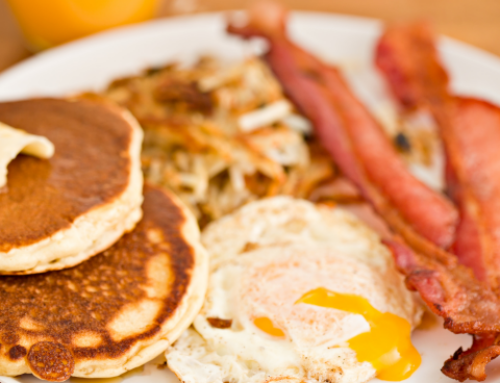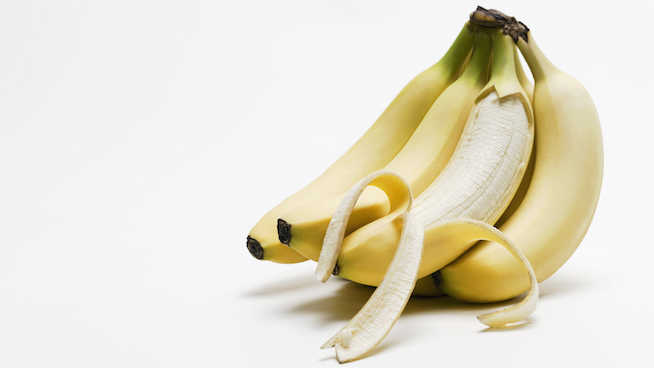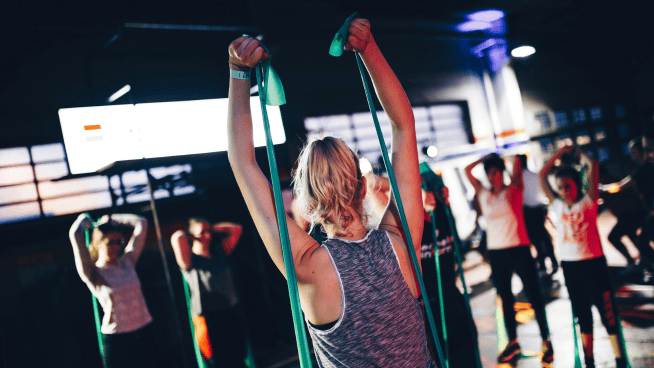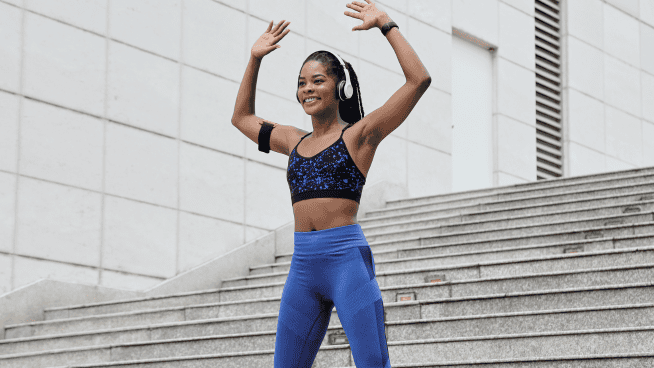Fermented Foods: The Performance-Enhancing Substance Athletes Overlook
An increasing amount of research is showing that your gut health has far-reaching impacts throughout the body.
Improved gut health has been found to correlate with a reduced risk of several chronic diseases and can even alter your emotional state for the better. And there’s reason to believe it can make you stronger, too.
The idea that strength-training athletes need to consume large amounts of carbohydrates immediately after training is no longer gospel. Research has found the post-working nutrient intake window is not as beneficial as we once thought, and that there is in reality a small amount of stored energy utilized during a typical weight training session (Essen-Gustavsson and Tesch, 1990; Schoenfeld et al., 2013; Tesch, Colliander, and Kaiser, 1986). The evidence going against the post-workout nutrient intake window makes it unnecessary to consume high-sugar items after exercising, and unless you are performing a CrossFit workout to the point of complete exhaustion or are training to run a marathon, there is very little chance you are coming close to depleting your energy stores during a training session. Certain items (namely sugar-sweetened beverages) have become popular post-workout options due in part to their high content of fast-acting carbohydrate. For years, we were told these sorts of carbs along with protein where exactly what we needed post-training to aid in muscle growth and the replenishment of your energy stores.
Unfortunately, overconsumption of these high-sugar beverages can lead to a whole host of issues, from diabetes to bacterial overgrowth (Jackson et al., 1999). A major epidemic right now is the prevalence of candidiasis, otherwise known as a yeast overgrowth in our body. This is triggered by the overconsumption of refined carbohydrates/sugar that feed the harmful bacteria in our intestines (Jackson et al., 1999; Sardi et al., 2013). To prevent this, we can focus on eating a more nutrient-dense diet and populating our large intestine with an abundance of good bacteria, thus aiding in overall gut health, digestion and a stronger immune system. When harmful bacteria overpopulate beneficial bacteria, we will then have a difficult time utilizing the food we take in, no matter what we put into our body (Jandhyala et al., 2015). That’s a major problem for any person, but it’s especially troubling for athletes looking to become bigger, faster, stronger, etc., via training.
If we could get the average athlete to cut down on their intake of highly processed carbohydrates while simultaneously increasing their intake of fermented foods, it could make a marked difference in their performance and overall wellness.
Fermented foods and drinks like raw refrigerated sauerkraut, kimchi, yogurt, milk kefir and coconut kefir increase the number of good bacteria in our large intestine. Fermented foods and drinks can be very healing due to both their beneficial bacteria along with the enzymes they include (Nichols, 2007; Yu et al., 2013). Consuming fermented foods and drinks can combat a bacterial imbalance by overpopulating the gut with good bacteria while also helping break down our food, leaving less food to sit and putrefy in our intestines, and thus leaving less of an opportunity for harmful bacteria to prosper through feeding off of this undigested food (Nichols, 2007). The better our digestion, the better we will utilize the food we are putting into our body, leading to even better improvements in our strength and health (Raak et al., 2014).
Though there is still much research to be done in this field, what’s there is promising. For example, probiotic supplementation has been found to help female college athletes improve body composition and potentially increase Deadlift performance.
It is important to point out that even though these fermented foods will help the vast majority of us, if you have Small Intestinal Bacterial Overgrowth or a histamine intolerance, then it would be wise to consider a non-lactic-acid-based probiotic supplement to populate your gut with good bacteria instead of consuming fermented foods due to your body’s current inability to degrade the histamine levels found in sauerkraut, kimchi, yogurt, milk kefir and coconut kefir (Ede, 2017).
We can crush ourselves during our training sessions, but the real strength gains occur through recovery and nutrition. If we are able to both improve the quality of our diet while optimizing the digestion and absorption of the nutrients we put into our body, then this will go a long way to helping us reach our training and health goals.
Photo Credit: Marek Uliasz/iStock
READ MORE:
- Fermented Milk: Does It Reduce Delayed Onset Muscle Soreness?
- The Best Foods for Digestive Health
- Apple Cider Vinegar’s Newest Health Benefit: Body Fat Scorcher
References
Ede, G. (2017). Histamine intolerance: Why freshness matters. Journal of Evolution and Health, 2(1), 11.
Essen-Gustavsson, B., & Tesch, P. A. (1990). Glycogen and triglyceride utilization in relation to muscle metabolic characteristics in men performing heavy-resistance exercise. European journal of applied physiology and occupational physiology, 61(1-2), 5-10.
Gonzalez, J. T., Fuchs, C. J., Betts, J. A., & Van Loon, L. J. (2016). Liver glycogen metabolism during and after prolonged endurance-type exercise. American Journal of Physiology-Endocrinology and Metabolism, 311(3), E543-E553.
Hoffman, J. R., Ratamess, N. A., Tranchina, C. P., Rashti, S. L., Kang, J., & Faigenbaum, A. D. (2009). Effect of protein-supplement timing on strength, power, and body-composition changes in resistance-trained men. International journal of sport nutrition and exercise metabolism, 19(2), 172-185.
Jackson, J. A., Riordan, H. D., Hunninghake, R., & Revard, C. (1999). Candida albicans: the hidden infection. J Orthomol Med, 14(4), 198-200.
Jandhyala, S. M., Talukdar, R., Subramanyam, C., Vuyyuru, H., Sasikala, M., & Reddy, D. N. (2015). Role of the normal gut microbiota. World journal of gastroenterology: WJG, 21(29), 8787.
Nichols, A. W. (2007). Probiotics and athletic performance: a systematic review. Current sports medicine reports, 6(4), 269-273.
Raak, C., Ostermann, T., Boehm, K., & Molsberger, F. (2014). Regular consumption of Sauerkraut and its effect on human health: A bibliometric analysis. Global advances in health and medicine, 3(6), 12-18.
Sardi, J. C. O., Scorzoni, L., Bernardi, T., Fusco-Almeida, A. M., & Giannini, M. M. (2013). Candida species: current epidemiology, pathogenicity, biofilm formation, natural antifungal products and new therapeutic options. Journal of medical microbiology, 62(1), 10-24.
Schoenfeld, B. J., Aragon, A. A., & Krieger, J. W. (2013). The effect of protein timing on muscle strength and hypertrophy: a meta-analysis. Journal of the International Society of Sports Nutrition, 10(1), 53.
Tesch, P. A., Colliander, E. B., & Kaiser, P. (1986). Muscle metabolism during intense, heavy-resistance exercise. European journal of applied physiology and occupational physiology, 55(4), 362-366.
Yu, Z., Zhang, X., Li, S., Li, C., Li, D., &
Yang, Z. (2013). Evaluation of probiotic properties of Lactobacillus plantarum
strains isolated from Chinese sauerkraut. World Journal of Microbiology and Biotechnology
RECOMMENDED FOR YOU
MOST POPULAR
Fermented Foods: The Performance-Enhancing Substance Athletes Overlook
An increasing amount of research is showing that your gut health has far-reaching impacts throughout the body.
Improved gut health has been found to correlate with a reduced risk of several chronic diseases and can even alter your emotional state for the better. And there’s reason to believe it can make you stronger, too.
The idea that strength-training athletes need to consume large amounts of carbohydrates immediately after training is no longer gospel. Research has found the post-working nutrient intake window is not as beneficial as we once thought, and that there is in reality a small amount of stored energy utilized during a typical weight training session (Essen-Gustavsson and Tesch, 1990; Schoenfeld et al., 2013; Tesch, Colliander, and Kaiser, 1986). The evidence going against the post-workout nutrient intake window makes it unnecessary to consume high-sugar items after exercising, and unless you are performing a CrossFit workout to the point of complete exhaustion or are training to run a marathon, there is very little chance you are coming close to depleting your energy stores during a training session. Certain items (namely sugar-sweetened beverages) have become popular post-workout options due in part to their high content of fast-acting carbohydrate. For years, we were told these sorts of carbs along with protein where exactly what we needed post-training to aid in muscle growth and the replenishment of your energy stores.
Unfortunately, overconsumption of these high-sugar beverages can lead to a whole host of issues, from diabetes to bacterial overgrowth (Jackson et al., 1999). A major epidemic right now is the prevalence of candidiasis, otherwise known as a yeast overgrowth in our body. This is triggered by the overconsumption of refined carbohydrates/sugar that feed the harmful bacteria in our intestines (Jackson et al., 1999; Sardi et al., 2013). To prevent this, we can focus on eating a more nutrient-dense diet and populating our large intestine with an abundance of good bacteria, thus aiding in overall gut health, digestion and a stronger immune system. When harmful bacteria overpopulate beneficial bacteria, we will then have a difficult time utilizing the food we take in, no matter what we put into our body (Jandhyala et al., 2015). That’s a major problem for any person, but it’s especially troubling for athletes looking to become bigger, faster, stronger, etc., via training.
If we could get the average athlete to cut down on their intake of highly processed carbohydrates while simultaneously increasing their intake of fermented foods, it could make a marked difference in their performance and overall wellness.
Fermented foods and drinks like raw refrigerated sauerkraut, kimchi, yogurt, milk kefir and coconut kefir increase the number of good bacteria in our large intestine. Fermented foods and drinks can be very healing due to both their beneficial bacteria along with the enzymes they include (Nichols, 2007; Yu et al., 2013). Consuming fermented foods and drinks can combat a bacterial imbalance by overpopulating the gut with good bacteria while also helping break down our food, leaving less food to sit and putrefy in our intestines, and thus leaving less of an opportunity for harmful bacteria to prosper through feeding off of this undigested food (Nichols, 2007). The better our digestion, the better we will utilize the food we are putting into our body, leading to even better improvements in our strength and health (Raak et al., 2014).
Though there is still much research to be done in this field, what’s there is promising. For example, probiotic supplementation has been found to help female college athletes improve body composition and potentially increase Deadlift performance.
It is important to point out that even though these fermented foods will help the vast majority of us, if you have Small Intestinal Bacterial Overgrowth or a histamine intolerance, then it would be wise to consider a non-lactic-acid-based probiotic supplement to populate your gut with good bacteria instead of consuming fermented foods due to your body’s current inability to degrade the histamine levels found in sauerkraut, kimchi, yogurt, milk kefir and coconut kefir (Ede, 2017).
We can crush ourselves during our training sessions, but the real strength gains occur through recovery and nutrition. If we are able to both improve the quality of our diet while optimizing the digestion and absorption of the nutrients we put into our body, then this will go a long way to helping us reach our training and health goals.
Photo Credit: Marek Uliasz/iStock
READ MORE:
- Fermented Milk: Does It Reduce Delayed Onset Muscle Soreness?
- The Best Foods for Digestive Health
- Apple Cider Vinegar’s Newest Health Benefit: Body Fat Scorcher
References
Ede, G. (2017). Histamine intolerance: Why freshness matters. Journal of Evolution and Health, 2(1), 11.
Essen-Gustavsson, B., & Tesch, P. A. (1990). Glycogen and triglyceride utilization in relation to muscle metabolic characteristics in men performing heavy-resistance exercise. European journal of applied physiology and occupational physiology, 61(1-2), 5-10.
Gonzalez, J. T., Fuchs, C. J., Betts, J. A., & Van Loon, L. J. (2016). Liver glycogen metabolism during and after prolonged endurance-type exercise. American Journal of Physiology-Endocrinology and Metabolism, 311(3), E543-E553.
Hoffman, J. R., Ratamess, N. A., Tranchina, C. P., Rashti, S. L., Kang, J., & Faigenbaum, A. D. (2009). Effect of protein-supplement timing on strength, power, and body-composition changes in resistance-trained men. International journal of sport nutrition and exercise metabolism, 19(2), 172-185.
Jackson, J. A., Riordan, H. D., Hunninghake, R., & Revard, C. (1999). Candida albicans: the hidden infection. J Orthomol Med, 14(4), 198-200.
Jandhyala, S. M., Talukdar, R., Subramanyam, C., Vuyyuru, H., Sasikala, M., & Reddy, D. N. (2015). Role of the normal gut microbiota. World journal of gastroenterology: WJG, 21(29), 8787.
Nichols, A. W. (2007). Probiotics and athletic performance: a systematic review. Current sports medicine reports, 6(4), 269-273.
Raak, C., Ostermann, T., Boehm, K., & Molsberger, F. (2014). Regular consumption of Sauerkraut and its effect on human health: A bibliometric analysis. Global advances in health and medicine, 3(6), 12-18.
Sardi, J. C. O., Scorzoni, L., Bernardi, T., Fusco-Almeida, A. M., & Giannini, M. M. (2013). Candida species: current epidemiology, pathogenicity, biofilm formation, natural antifungal products and new therapeutic options. Journal of medical microbiology, 62(1), 10-24.
Schoenfeld, B. J., Aragon, A. A., & Krieger, J. W. (2013). The effect of protein timing on muscle strength and hypertrophy: a meta-analysis. Journal of the International Society of Sports Nutrition, 10(1), 53.
Tesch, P. A., Colliander, E. B., & Kaiser, P. (1986). Muscle metabolism during intense, heavy-resistance exercise. European journal of applied physiology and occupational physiology, 55(4), 362-366.
Yu, Z., Zhang, X., Li, S., Li, C., Li, D., &
Yang, Z. (2013). Evaluation of probiotic properties of Lactobacillus plantarum
strains isolated from Chinese sauerkraut. World Journal of Microbiology and Biotechnology











